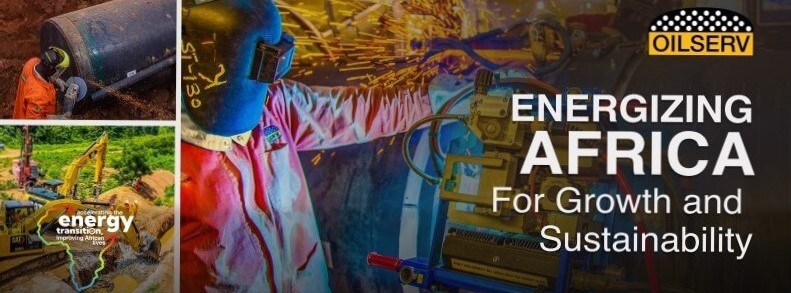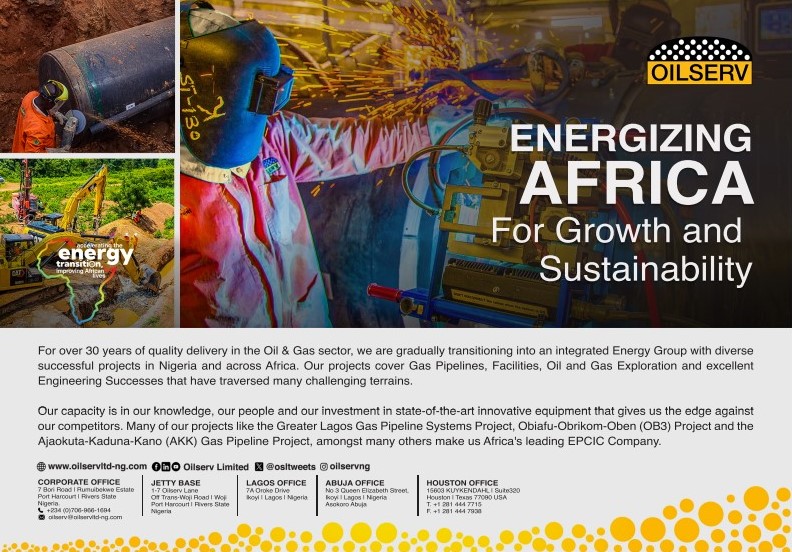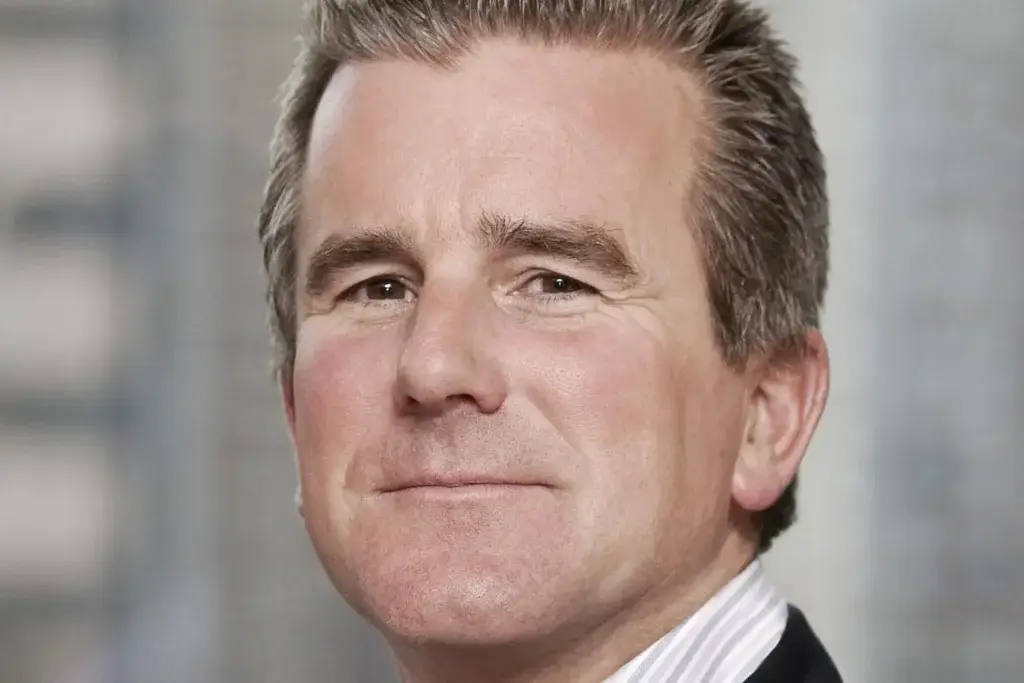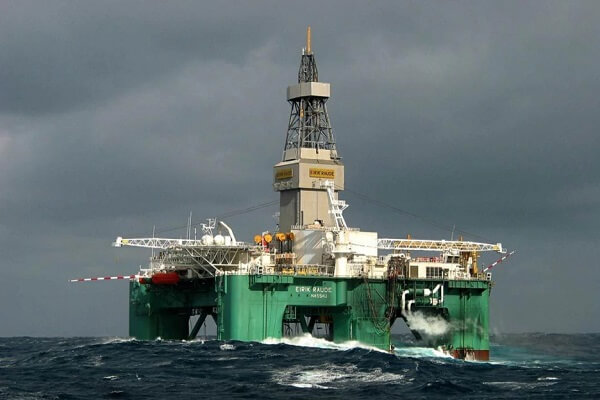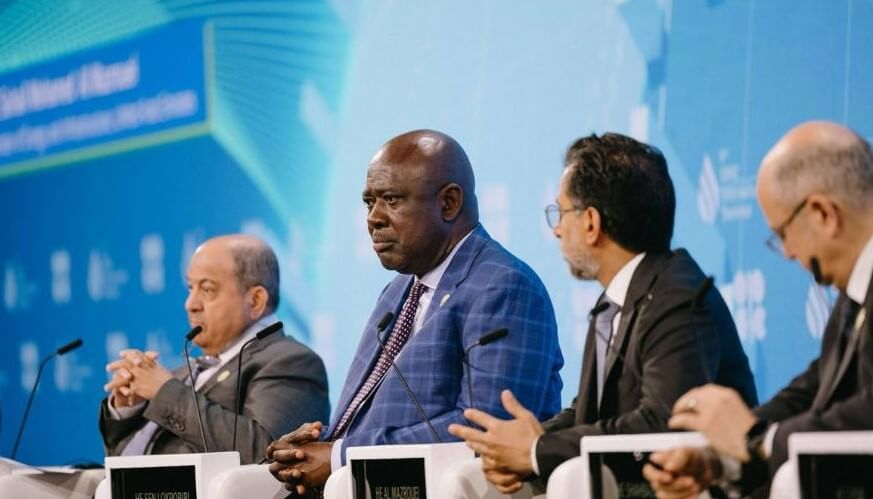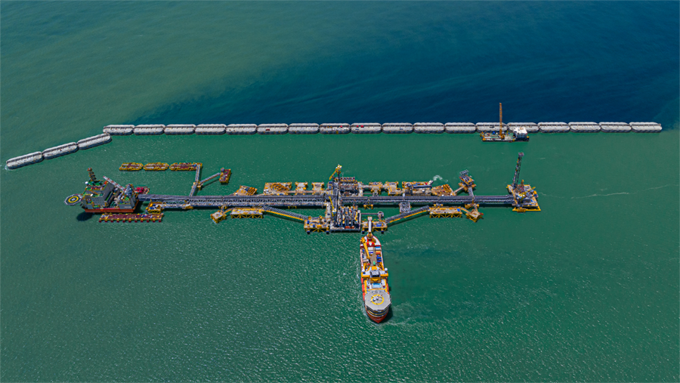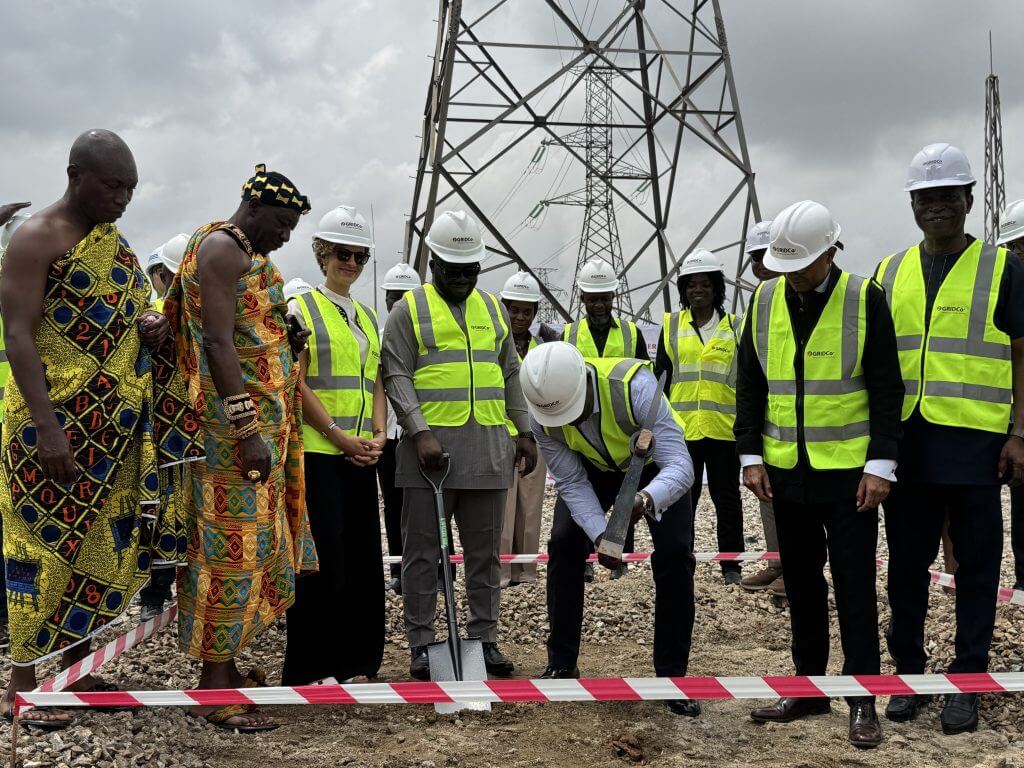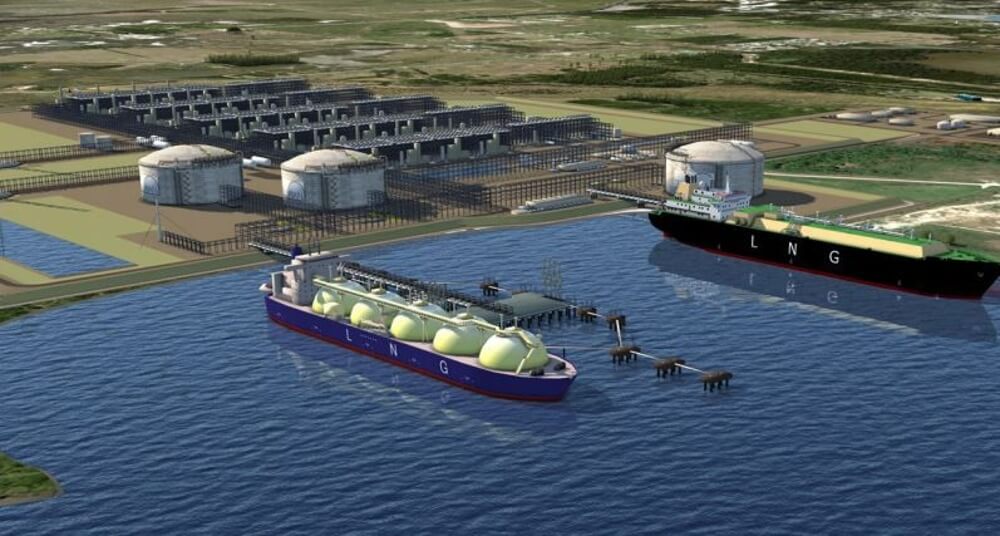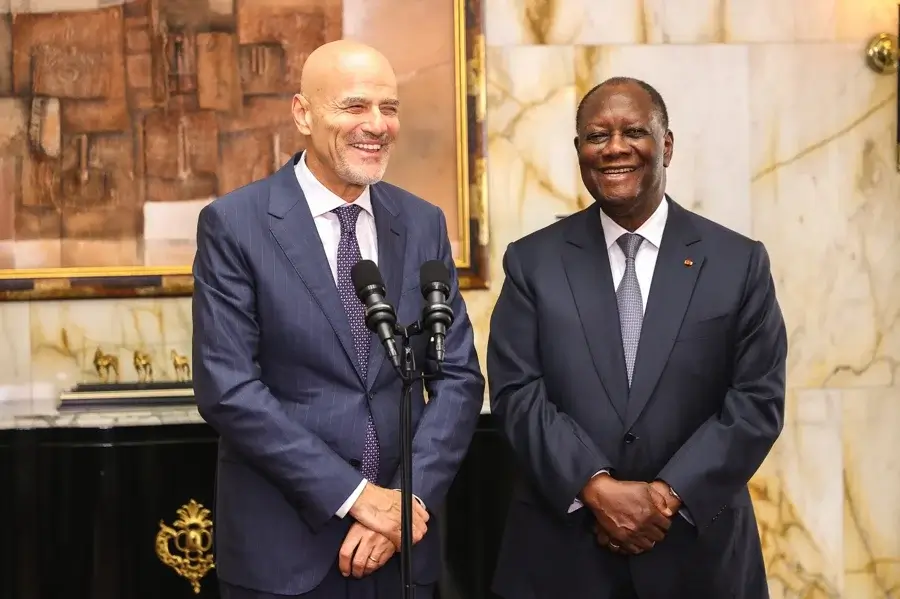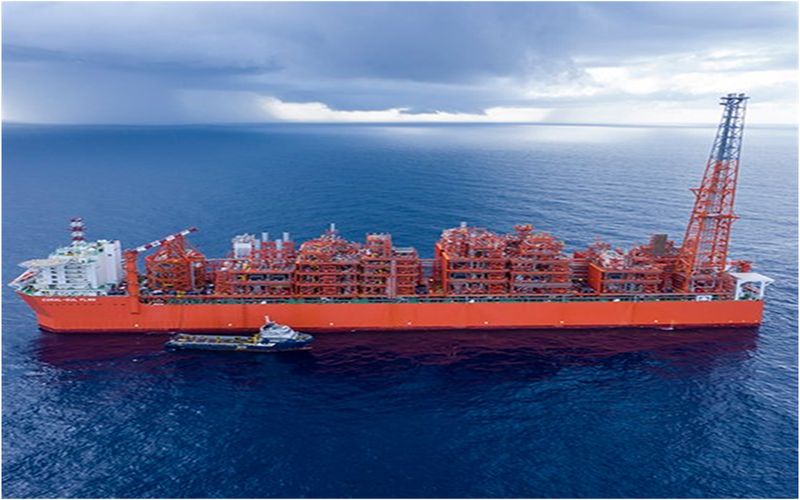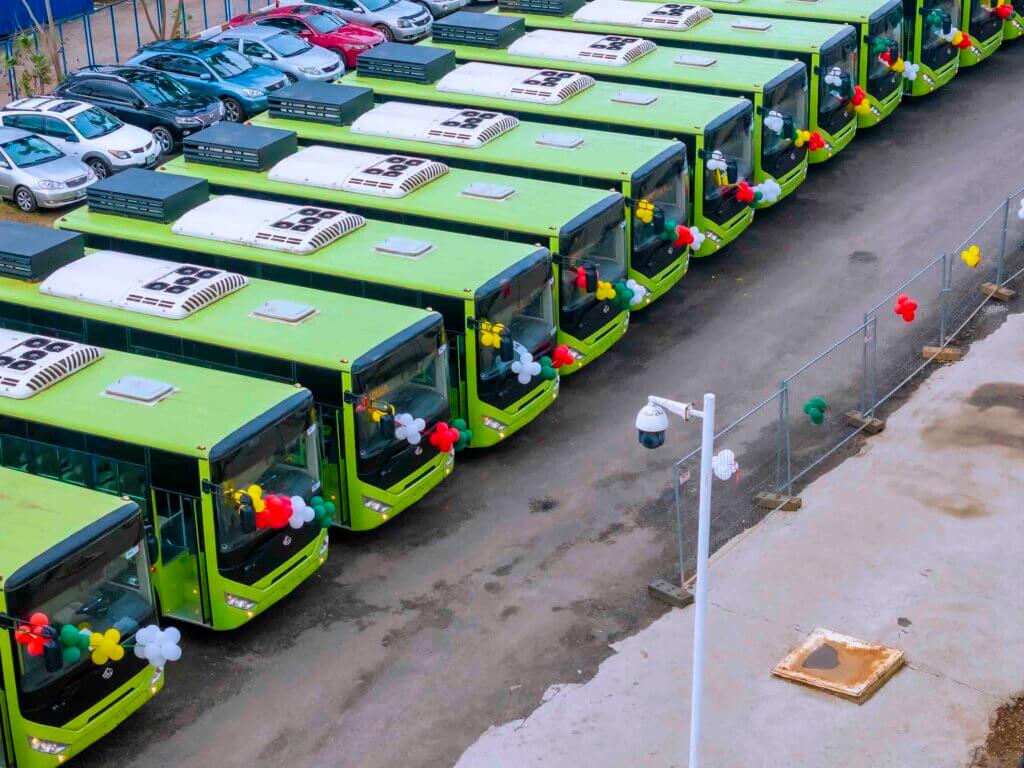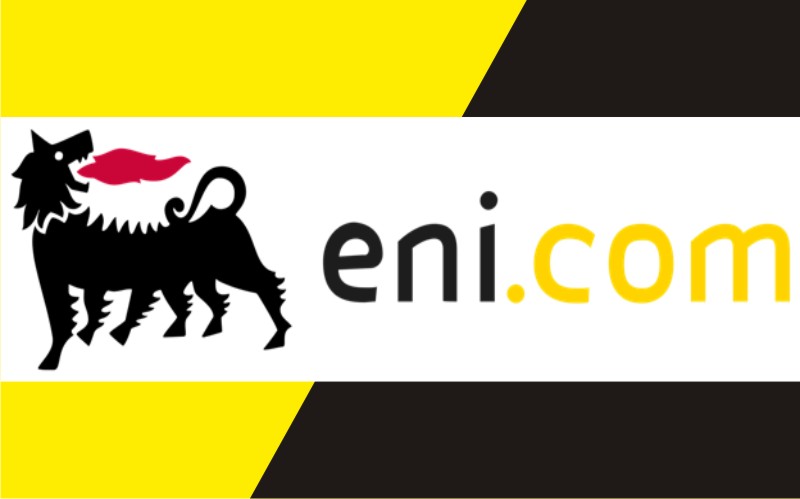
Eni’s Board of Directors, chaired by Giuseppe Zafarana, yesterday approved the unaudited consolidated results for the full year and the fourth quarter of 2023.
“2023 was another year of excellent results for Eni in the face of an uncertain and volatile scenario. We delivered strongly on both financial and operational targets and we continued to progress our strategy of generating value while decarbonizing and ensuring secure and affordable energy supplies to markets. Our results were underpinned by our distinctive satellite model that continues to prove to be an effective lever in accelerating growth and value creation.
We have completed the acquisition of Neptune which with its gas weighted portfolio strongly synergistic to our assets in North Europe, Indonesia and North Africa will be a core element of our future plans. In 2023 we continued to deliver our organic growth, with the completion on time and on budget of the two flagship, low-carbon projects of Baleine in Cote d’Ivoire and Congo FLNG ph.1. We maintained leadership in exploration thanks to outstanding success in Indonesia and elsewhere, while we also hit the upper range of our production target. GGP achieved its historical result thanks to the quality of its portfolio, steady optimization drive and favorable contractual settlements.
Delivering gas and low carbon projects is one aspect of our transition plan as we are also materially growing our presence in the new energies. Enilive, our activity dedicated to biofuels and mobility services, has expanded its international presence by purchasing a 50% interest in the Chalmette biorefinery in the USA and by signing a JV agreement in South Korea. Plenitude has now reached 3 GW of renewable capacity. These two businesses already generate an economic performance of around €1 bln EBITDA each.
With the recent entry of an institutional investor into the shareholding of Plenitude, we highlighted the value of this business, that is estimated at around €10 bln and accessed additional dedicated capital supporting our growth plan.
Our financial results were excellent, with a proforma adjusted EBIT of almost €18 bln and an adjusted net profit of more than €8 bln. Cash flow generation at €16.5 bln before working capital movements gave us a significant headroom over the substantial cash returns to shareholders of €4.8 bln, while keeping our leverage at 0.2,” Eni CEO Claudio Descalzi said.
Financial highlights of the fourth quarter 2023
- Notwithstanding a volatile scenario featuring both weaker Brent (down by 5% from Q4 ‘22) and natural gas prices (down 57% for the European benchmarks), in Q4 ’23 Eni’s adjusted profit before tax was €3.2 bln (with a FY adjusted profit before tax of €15.1 bln), signaling a robust Group performance driven by strong operational execution and financial discipline.
- Proforma adjusted EBIT for Q4 ’23 was €3.8 bln (with a remarkable €17.8 bln in the FY) driven by steady E&P results, a record-breaking GGP performance and a positive contribution from Plenitude.
- E&P earned €2.4 bln of adjusted EBIT in Q4 ’23, down 17% from Q4 ’22 affected by weaker realized prices, partly offset by a strong rebound in hydrocarbon production, up by 6% to 1.71 mln boe/d in the quarter.
- FY ’23 E&P adjusted EBIT was €9.9 bln (versus €16.5 bln in the FY ’22) reflecting weaker hydrocarbons realization and the effect of the deconsolidation of Azule. Including the contribution of JV/associates, proforma adjusted EBIT for the FY was €13.3 bln (versus €20.9 bln in 2022).
- Q4 ’23 GGP adjusted EBIT was €0.68 bln and included the favorable outcome of an arbitration procedure. FY ’23 adjusted EBIT was a record €3.2 bln, up by 57% compared with 2022, driven by an optimized natural gas and LNG portfolio and contract renegotiations benefits, while maintaining stability and reliability of supplies to European markets and compensating for the reduction of Russian volumes. Including the contribution of JV SeaCorridor, proforma adjusted EBIT for the FY was €3.4 bln.
- Enilive delivered €0.12 bln of adjusted EBIT in the Q4 ’23, up by 5% y-o-y, €0.73 bln in the FY ’23 (up by 8%) benefitting from a resilient marketing performance. Proforma adjusted EBITDA in the FY ’23 was €1 bln in line with the Company’s guidance.
- Refining Q4 ’23 results were impacted by negative trends in the refining scenario, with the SERM falling by 40% y-o-y and narrower spreads between heavy/sour vs. light/sweet crudes, with an adjusted EBIT of €0.03 bln compared with €0.36 bln in Q4 ‘22 (€0.44 bln in FY ’23 compared with €1.51 bln in FY ‘22).
- Plenitude & Power delivered €0.11 bln of adjusted EBIT in Q4 ‘23, down 6% year-on-year, impacted by lower marketing margins for both renewables and gas-fired plants. FY ’23 adjusted EBIT was €0.68 bln, up 11% leveraging on strong performance in the retail business and the material ramp-up in renewable capacity. Plenitude’s proforma adjusted EBITDA in the FY ’23 was €0.93 bln well ahead of the original EBITDA guidance.
- Versalis reported an adjusted operating loss of €0.24 bln in Q4 ’23 (a loss of €0.61 bln in the FY ’23). The negative performance was driven by a weak macro environment and higher production costs in Europe.
- Q4 ’23 adjusted net profit attributable to Eni shareholders was €1.64 bln, with a Group tax rate of about 48%. In the FY ’23 adjusted net profit attributable to Eni shareholders was €8.30 bln and a Group tax rate of about 44%.
- In Q4 ’23, Group adjusted operating cash flow before working capital at replacement cost was €3.6 bln, exceeding outflows related to organic capex of €2.4 bln, and resulting in an organic free cash flow “FCF” of €1.2 bln. In the FY ’23, adjusted cash flow was €16.5 bln, exceeding outflows related to capex of €9.2 bln, resulting in an organic FCF of around €7.3 bln. In addition to fund WC requirements, the organic FCF was deployed to return cash to shareholders through dividends (€3 bln) and a share repurchase program (€1.8 bln), and to pursue strategic M&A opportunities to accelerate growth in the decarbonization businesses (€2.4 bln), including the Chalmette deal in the USA, the acquisition of Novamont control and the purchase of gas assets in Algeria.
- Net borrowings ex-IFRS 16 as of December 31, 2023, were €10.9 bln, an increase of around €3.9 bln from December 31, 2022. Group leverage stood at 0.20, versus 0.13 as of December 31, 2022.
- In November 2023, the second out of four instalments of the dividend for the fiscal year 2023 of €0.23 per share was paid for a total consideration of €0.75 bln. The third instalment of the 2023 dividend of €0.24 per share was resolved at the same Board meeting and is scheduled to be paid on March 20, 2024.
- In September, the second tranche of the 2023 share buy-back program was launched contemplating a maximum cash out of €1.375 bln (or a maximum number of 275 mln shares, approximately 8% of the share capital) to be executed by April 2024. Through February 9, 2024, 84.5 mln shares have been purchased for a cash outlay of €1.275 bln.
- In December, Plenitude and Energy Infrastructure Partners (EIP) signed an agreement which allows EIP to acquire a 9% interest in Plenitude through a reserved share capital issuance with net proceeds to Eni’s subsidiary of up to €0.7 bln. The transaction, expected to be finalized early in 2024, is recognizing an implied enterprise value of Plenitude of around €10 bln and will strengthen Eni’s consolidated financial structure and leverage. As at December 31, 2023, Plenitude’s net debt was about €2.2 bln.
MAIN BUSINESS DEVELOPMENTS
Exploration & Production
- In FY 2023, exploration activities delivered an outstanding performance with around 900 mln boe of new resource additions to the reserve base, driven by the exceptional Geng North discovery in Indonesia, one of the best in the whole sector, and continuing success in Egypt, Mexico, Algeria, Tunisia and UAE.
- In Q4 2023, production resumed its growth trajectory with 1.71 mln boe/d, up by 6% y-o-y; production for the year was 1.66 mln boe/d, hitting the upper range of our production target.
- Among the production highlights of the year, we can count the startup of the Baleine oilfield, off the Côte d’Ivoire, in less than two years after the discovery, and the commissioning of the Tango FLNG vessel in block Marine XII off Congo, which will deliver the first LNG cargo in the first quarter 2024 on schedule.
- In January 2024, the Neptune acquisition was finalized and will contribute to 2024 results. The transaction, comprising Neptune’s entire portfolio other than its operations in Norway (purchased by Vår Energi owned at 63% by Eni) and Germany (carved out of the transaction), aligns with Eni’s strategy of providing the market and the customers with affordable, secure, and low-carbon energy, guaranteed by natural gas.
- Indonesia is expected to become one of the major growth drivers of natural gas in E&P. The giant Geng North discovery coupled with the integration of Neptune assets and of the interests in the Rapak and Ganal PSC blocks, farmed-in from Chevron, will give Eni access to massive resources whose development will be synergistic with Eni’s existing fields and the Bontang LNG export terminal, offering the prospect of transforming the Kutei basin into a new world class gas hub.
Global Gas & LNG Portfolio (GGP)
- The GGP segment has delivered on ensuring stable and reliable natural gas supplies to European markets notwithstanding the massive fall in the import flows from Russia.
- In November, Eni signed an agreement with Open EP to guarantee the flow of gas from France to Switzerland and Italy in the event of interruptions or significant flow reductions from Germany.
Enilive, Refining and Chemicals
- In the Q4 2023 the Chalmette biorefinery in Louisiana (USA), a 50-50 joint venture between EniLive and PBF Energy established earlier in the year, produced 81 ktonnes of bioproducts (204 ktonnes in the second half of 2023).
- In October, Versalis completed the purchase of the remaining 64% participating interest in Novamont from its other shareholder Mater-Bi acquiring the control of the investee.
- In October, construction works started of a demo plant in Mantova to develop Hoop®, Versalis proprietary technology developed with Italian engineering company S.R.S. testing a chemical process to recycle mixed plastic waste and to transform it into raw materials to produce new virgin polymers.
- In November, an agreement was signed with Saipem to explore opportunities to jointly build biorefineries producing airlines and motor transport biofuels.
- In January, Enilive and LG Chem building on the preliminary agreement signed in September 2023, decided to form a joint venture which will make the final investment decision on a biorefinery project in South Korea expected to start operations in 2026 with an annual processing capacity of 400 ktons of feedstocks, leveraging on Eni’s Ecofining™ technology.
- In January, signed a MOU between Enilive and Ryanair for the long-term supply of sustainable aviation fuel at selected Ryanair airports across Italy. This agreement will enable Ryanair to access to up to 100,000 tons of Sustainable Aviation Fuel (SAF) between 2025 and 2030.
- In January, Eni confirmed its decision to build Italy’s third bio-refinery in Livorno with a capacity of 500 ktonnes/y. The project is awaiting official authorizations and includes the construction of a biogenic feedstock pre-treatment unit, an Ecofining™ plant and a facility to produce hydrogen from methane gas. Completion and commissioning are expected by 2026.
Plenitude & Power
- In October, operations started at the world’s largest offshore wind facility, Dogger Bank, where the Plenitude-participated Vårgrønn JV retains a 20% revenue-interest. Renewable electricity is transmitted to the UK’s national grid.
- In December, the Plenitude participated JV GreenIT signed an agreement with Galileo, the pan-European renewable energy development and investment platform, to install 140 MW of solar photovoltaic capacity in Italy, with ongoing plans to reach 1,000 MW.
- In December, signed a deal where Plenitude agreed to purchase from EDP Renováveis, S.A an interest of 80% in the photovoltaic plants of Cattlemen (Texas), Timber Road and Blue Harvest (Ohio) with a total installed capacity of about 478 MW (383 MW Plenitude share).
- In December, Plenitude reached an agreement with BlueFloat Energy and Sener Renewable Investments to join their strategic partnership to progress in the development of offshore wind projects in Spain. The agreement allows to create a leading consortium in the Spanish offshore wind sector with a total portfolio of approximately 1.25 GW of floating offshore wind projects.
Decarbonization and Sustainability
- The associated natural gas volumes produced at the recently started-up Baleine field off the Cote d’Ivoire are being freely delivered to local state companies to fuel the country’s electricity generation significantly contributing to reducing energy poverty and improving local development, as part of Eni’s dual flag partnership model.
- Eni UK has been awarded a Carbon Dioxide Appraisal and Storage Licence (CS Licence) for the depleted Hewett gas field, in the Southern North Sea sector of the UK.
- In November, the Callisto’s integrated Carbon Capture and Storage (CCS) project has been included in the European list of Projects of Common Interest (PCI Projects). This project, which Eni as operator is developing in a JV with Snam, will build a CCS hub in the Ravenna offshore (Italy) leveraging Eni’s depleted gas fields in the area.
- In October, Eni and the UK Government reached an agreement in principle on an economic model for the activities of CO2 transportation and storage at the HyNet NorthWest CCS hub operated by Eni. Hynet NorthWest is expected to be operational around the middle of this decade with an initial storage capacity of 4.5 mmtonnes/y of CO2.
- In December, Eni Rovuma Basin (Mozambique) announced the start of vegetable oil production to be used as feedstock in Eni’s biorefineries. The vegetable oil extracted from products from local agro-processing factories preserve agriculture, while ensuring traceability, respect of human rights and contribution to local development.
- In December, Eni signed a five-year Sustainability-Linked revolving credit line worth €3 billion, related to two targets of the Company’s Sustainability-Linked Financing Framework, lastly updated in April 2023.
- In December, Eni was ranked as Gold Standard within the Oil and Gas Methane Partnership 2.0 (OGMP 2.0) program as reported in the International Methane Emissions Observatory (IMEO) published by the United Nations Environment Programme (UNEP), following Eni’s positive assessment for significantly improving reporting of methane emissions, and for having already complied with the Oil and Gas Climate Initiative (OGCI) recommendation of reducing upstream methane emission intensity “well below 0.2%” by 2025. Eni has already achieved this target thanks to a continuous focus on reducing fugitive emissions and through projects of methane abatement from venting and flaring. In 2022 this value stood at 0.08%.
- ESG/Climate Ratings: Sustainalytics has maintained Eni in the “medium risk” band once again in 2023. Eni has been also confirmed first among its peers in terms of number of aligned metrics in the Climate Action 100+ Net Zero Benchmark evaluation issued in October. Moreover, Eni has been recognized for the fourth consecutive year by Carbon Tracker’s “Absolute Impact 2023” research as the only company among the 25 largest ones in the Oil & Gas sector to have established climate objectives that meet the prerequisites to be aligned with Paris Agreement.
- Eni announced its financial support to the Global Flaring and Methane Reduction trust fund (GFMR), a program sponsored by the World Bank to help governments and operators in developing countries eliminate routine flaring and reduce methane emissions from the O&G sector to near zero by 2030.
- In December, an energy efficiency program was started in Rwanda through the delivery of improved cookstoves to households in the Nyagatare district. The whole program foresees supply and monitor 500,000 improved cookstoves during the next 10 years to reduce CO2 emissions and improve health conditions while cooking.
- In December, Eni signed a voluntary 5-year-term cooperation agreement with the International Organization for Migration (IOM) to boost youth employment in Libya’s Fezzan region. The project will involve 850 trainees and will enhance their professional skills creating a stronger workforce in key fields, such as agribusiness, facilitating their inclusion in the agriculture, construction, and industry sectors, while improving youth prospects through education, training, and employment services.

